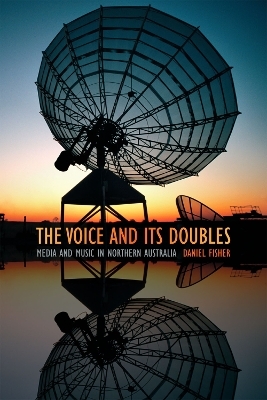
The Voice and Its Doubles
Media and Music in Northern Australia
Seiten
2016
Duke University Press (Verlag)
978-0-8223-6089-6 (ISBN)
Duke University Press (Verlag)
978-0-8223-6089-6 (ISBN)
In The Voice and its Doubles Daniel Fisher explores the production of Aboriginal Australian audio media, showing how the mediatization of the Aboriginal voice provides the means to representing and linking Indigenous communities, maintaining distinct linguistic and cultural traditions, and gaining access to Australian political life.
Beginning in the early 1980s Aboriginal Australians found in music, radio, and filmic media a means to make themselves heard across the country and to insert themselves into the center of Australian political life. In The Voice and Its Doubles Daniel Fisher analyzes the great success of this endeavor, asking what is at stake in the sounds of such media for Aboriginal Australians. Drawing on long-term ethnographic research in northern Australia, Fisher describes the close proximity of musical media, shifting forms of governmental intervention, and those public expressions of intimacy and kinship that suffuse Aboriginal Australian social life. Today’s Aboriginal media include genres of country music and hip-hop; radio requests and broadcast speech; visual graphs of a digital audio timeline; as well as the statistical media of audience research and the discursive and numerical figures of state audits and cultural policy formation. In each of these diverse instances the mediatized voice has become a site for overlapping and at times discordant forms of political, expressive, and institutional creativity.
Beginning in the early 1980s Aboriginal Australians found in music, radio, and filmic media a means to make themselves heard across the country and to insert themselves into the center of Australian political life. In The Voice and Its Doubles Daniel Fisher analyzes the great success of this endeavor, asking what is at stake in the sounds of such media for Aboriginal Australians. Drawing on long-term ethnographic research in northern Australia, Fisher describes the close proximity of musical media, shifting forms of governmental intervention, and those public expressions of intimacy and kinship that suffuse Aboriginal Australian social life. Today’s Aboriginal media include genres of country music and hip-hop; radio requests and broadcast speech; visual graphs of a digital audio timeline; as well as the statistical media of audience research and the discursive and numerical figures of state audits and cultural policy formation. In each of these diverse instances the mediatized voice has become a site for overlapping and at times discordant forms of political, expressive, and institutional creativity.
Daniel Fisher is Assistant Professor of Anthropology at the University of California, Berkeley, and the coeditor of Radio Fields: Anthropology and Wireless Sound in the 21st Century.
Acronyms vii
Acknowledgments ix
Prologue. Staging the Voice xiii
Introduction 1
1. Mediating Kinship: Radio's Cultural Poetics 43
2. Aboriginal Country 80
3. From the Studio to the Street 114
4. From Radio Skid Row to the Reconciliation Station 143
5. Speaking For or Selling Out? Dilemmas of Aboriginal Cultural Brokerage 182
6. A Body for the Voice 222
Conclusion. An Immanent Alterity 250
Notes 267
References 287
Index 307
| Erscheinungsdatum | 29.04.2016 |
|---|---|
| Zusatzinfo | 16 illustrations |
| Verlagsort | North Carolina |
| Sprache | englisch |
| Maße | 152 x 229 mm |
| Gewicht | 612 g |
| Themenwelt | Sozialwissenschaften ► Ethnologie ► Völkerkunde (Naturvölker) |
| Sozialwissenschaften ► Soziologie | |
| ISBN-10 | 0-8223-6089-6 / 0822360896 |
| ISBN-13 | 978-0-8223-6089-6 / 9780822360896 |
| Zustand | Neuware |
| Haben Sie eine Frage zum Produkt? |
Mehr entdecken
aus dem Bereich
aus dem Bereich
Schweden : Ambiguitäten verhandeln - Tolerieren als soziale und …
Buch | Softcover (2023)
Brill Schöningh (Verlag)
CHF 69,85
Buch | Softcover (2023)
transcript (Verlag)
CHF 75,60


